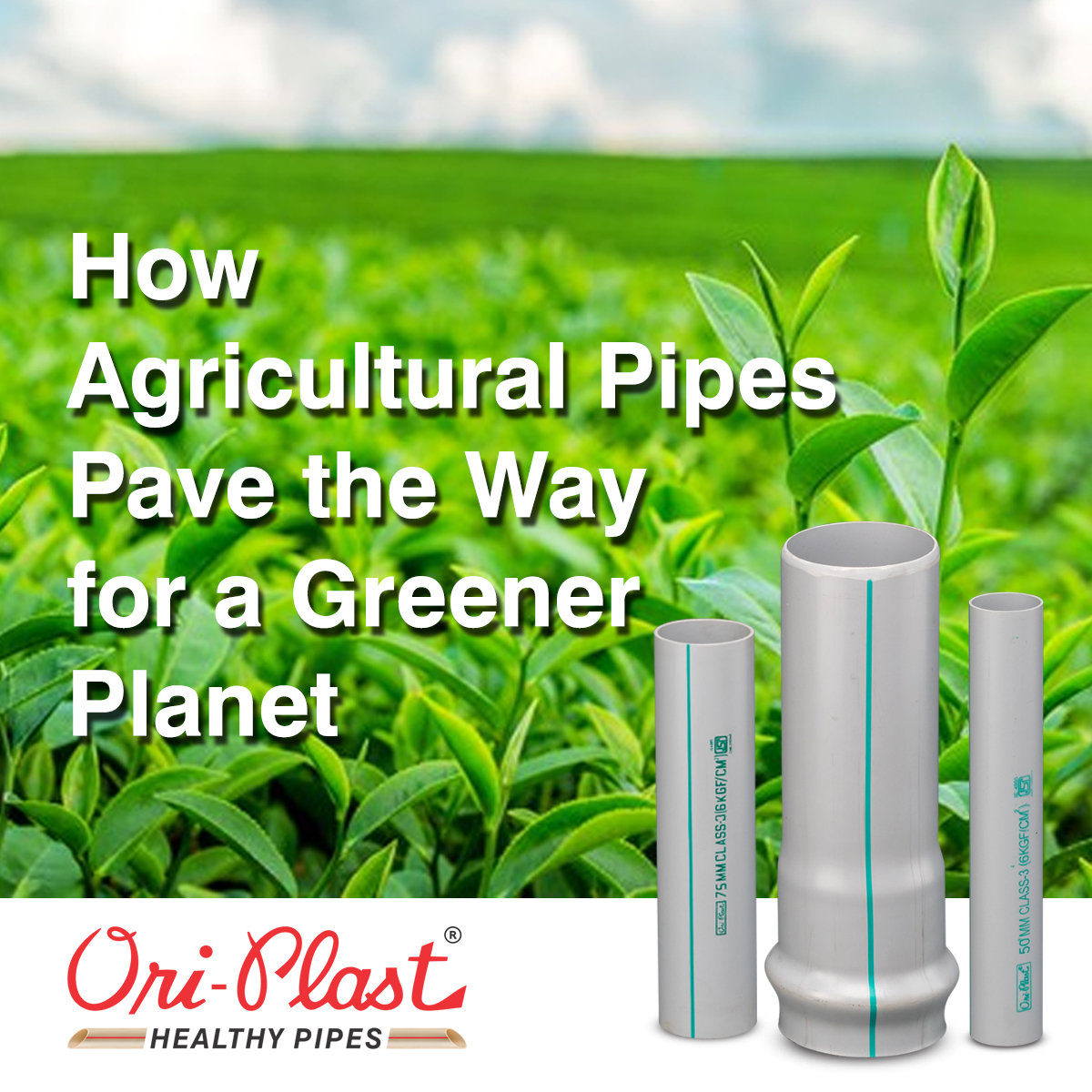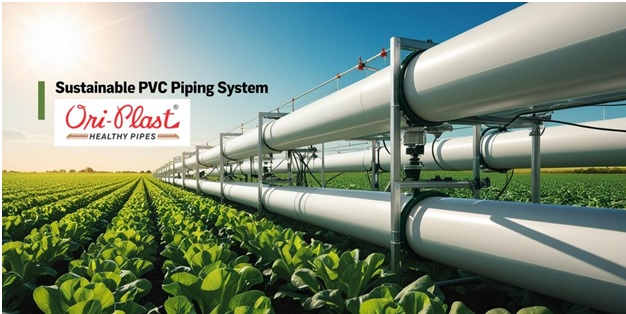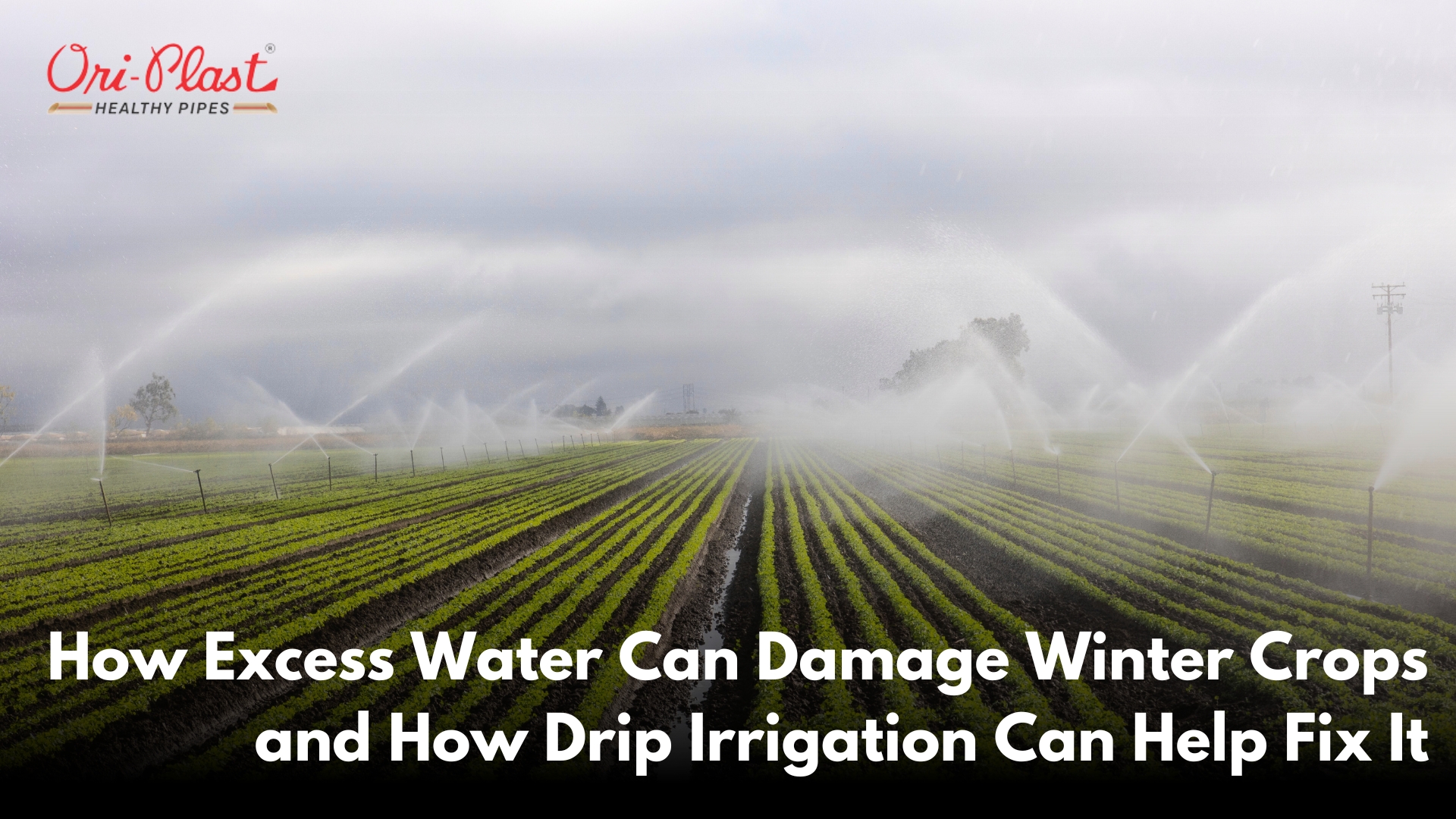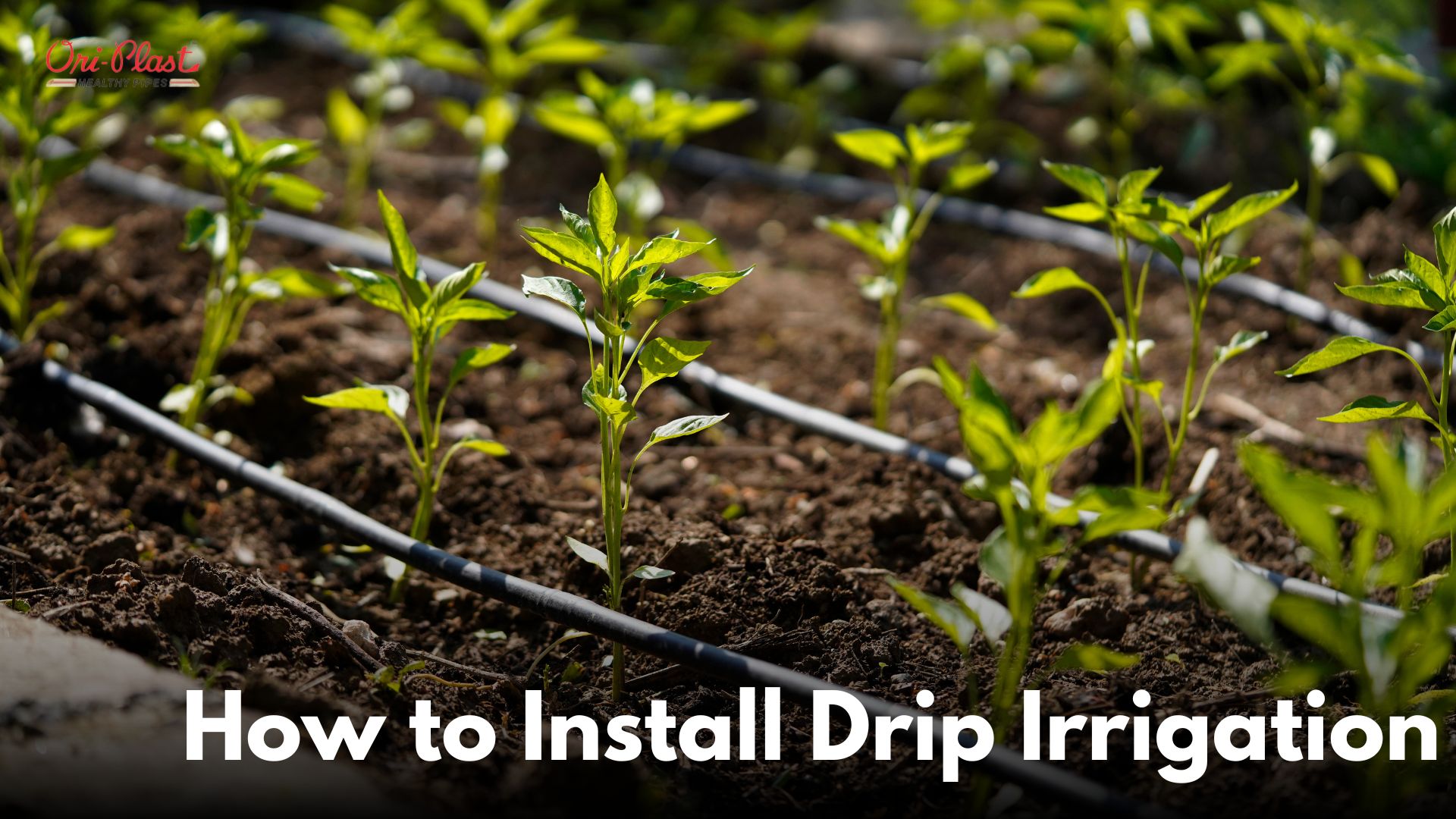Adequate water supply is crucial for agriculture. It affects crop yield and plays a vital role in food security. In India, approximately 48.8% of about 140 million hectares of agricultural land is irrigated, which contributes towards 80% of the groundwater consumption in the country. The remaining land relies on the seasonal monsoon for irrigation. Given this scenario, irrigation must be done keeping two goals in mind — reducing water consumption and increasing productivity.
Several advanced irrigation techniques like the sprinkler system, drip mechanism, micro-irrigation, water harvesting, and recycling, etc., are deployed these days to minimize water wastage. Agricultural pipes supplement these techniques, making more effective and greener irrigation possible.
What are Agricultural Pipes?
Agricultural pipes connect the water source to the field, facilitating the flow of water, fertilizers, and other nutrients to the plants, as per the irrigation method.
The agricultural pipes, made of polyvinyl chloride (PVC), are 100% recyclable and environment-friendly. Before the advent of PVC pipes, farmers were dependent on cast iron or galvanized steel pipes, which were not only expensive but also bulky and susceptible to rusting and chemical decomposition.
PVC pipes have transformed the sector, enabling farmers to irrigate large areas of land and transport water over long distances easily, quickly, and economically.
So what are the features of PVC pipes that make them the perfect choice for agriculturists?
- They are lightweight, tough, and durable.
- They resist weathering, corrosion, abrasion, and leaks.
- Their long life span and minimal maintenance requirement makes them cost-effective
- The unplasticized version of PVC allows it to carry water smoothly with minimal turbulence.
Responsible and Green Irrigation with Agricultural Pipes
As a result of the production process they go through, agricultural pipes and the unique features they offer green solutions to several of our conservation concerns.
Let’s look at some of the eco-friendly benefits of PVC agriculture pipes.
Smaller carbon footprint
The manufacturing of PVC agricultural pipes consumes less energy and creates minimal waste. These pipes are fully recyclable, therefore, have a smaller carbon footprint. Moreover, their production involves the use of chlorine, which is an abundantly available natural resource.
Less wastage of water
The leak-free fitting of PVC pipes is one of the biggest pluses for agricultural applications as they curb percolation and seepage. An agricultural pipe network is pressure-regulated and helps to minimize tail-end water losses.
No water logging and resultant issues
No leakage means there are no water-logging issues. Thanks to this, farmers can control the problems arising out of water logging, such as the unnecessary growth of weeds and pests along the irrigation channel, to a large extent.
A well-laid network of agricultural pipes, working as a channel for water conveyance, reduces soil erosion and enhances the accessibility of water to even higher field levels, ensuring uniform distribution throughout.
Besides the above benefits, PVC pipes offer higher economic benefits to the farmers who use them, further incentivizing their use.
These pipes have a super-smooth surface which considerably reduces pumping cost. Also, being lightweight, PVC pipes are easy to handle and require minimal installation cost. The durability of these pipes adds to the cost-advantage ratio.
PVC agricultural pipes, with their ability to meet constant water supply needs, can resolve the irrigation woes of modern farmers, while helping them take greener measures at increased profits.
To know more about how the right agricultural pipes can match your irrigation requirements, contact Oriplast today!




